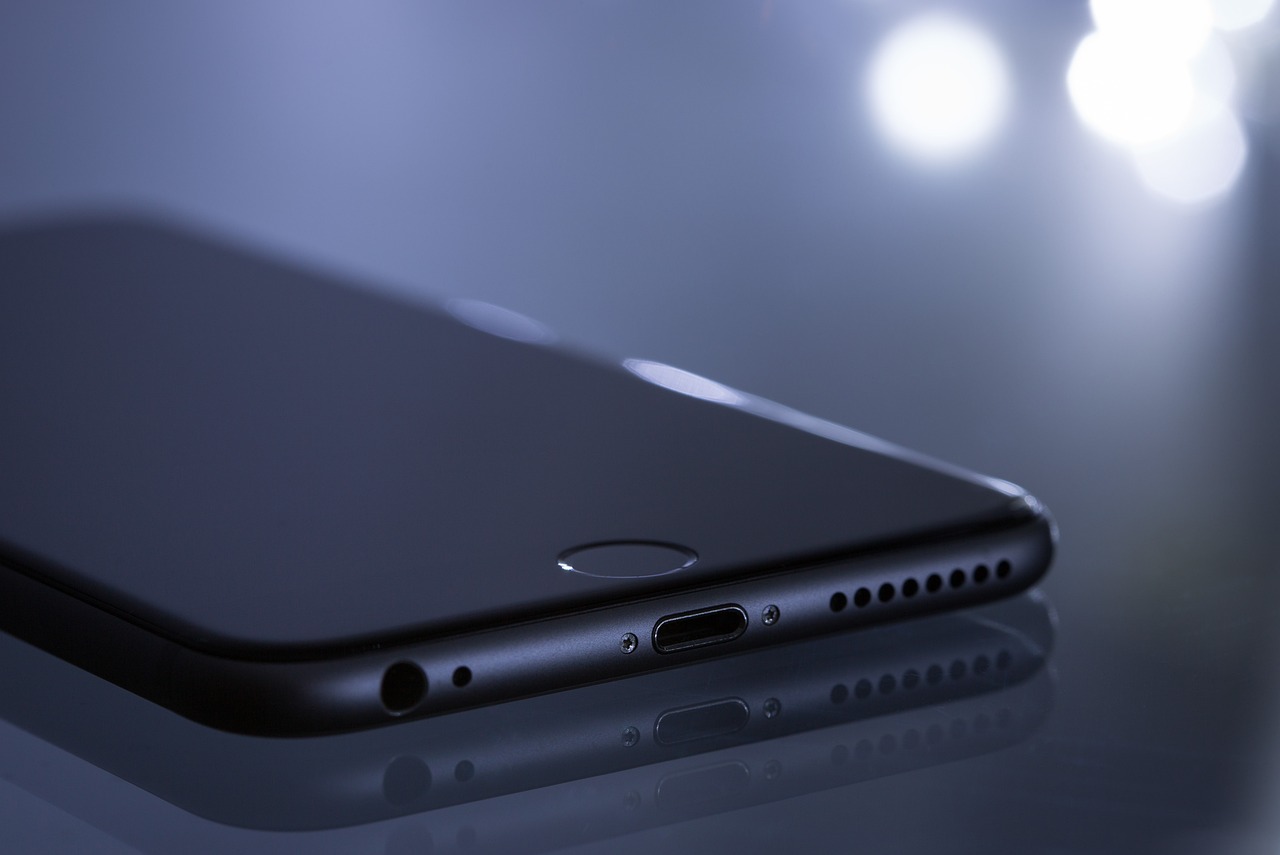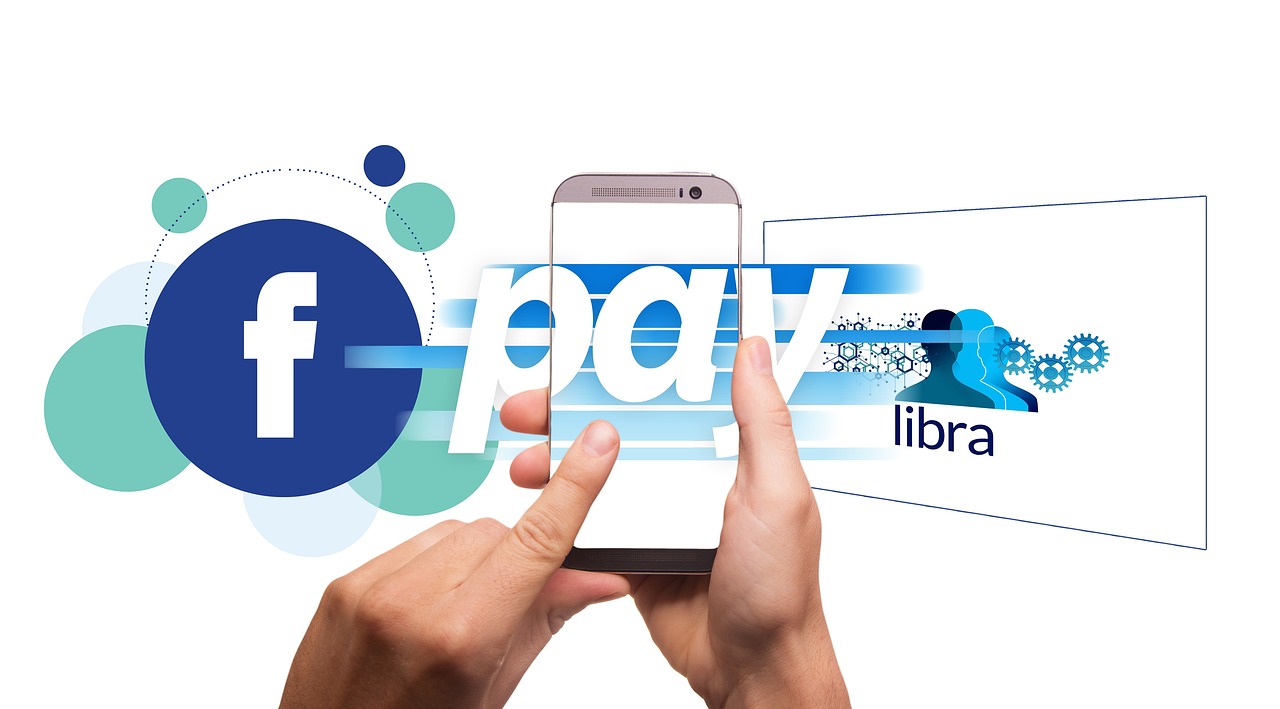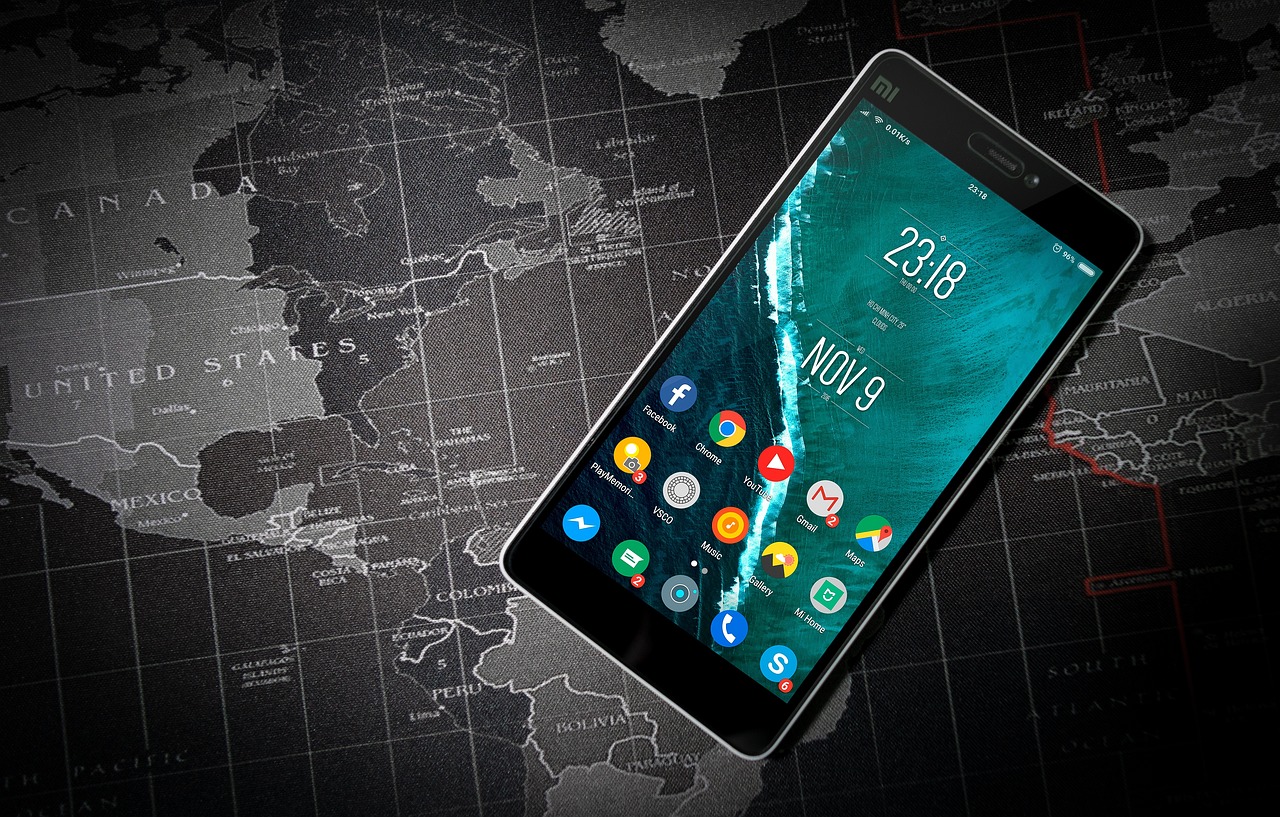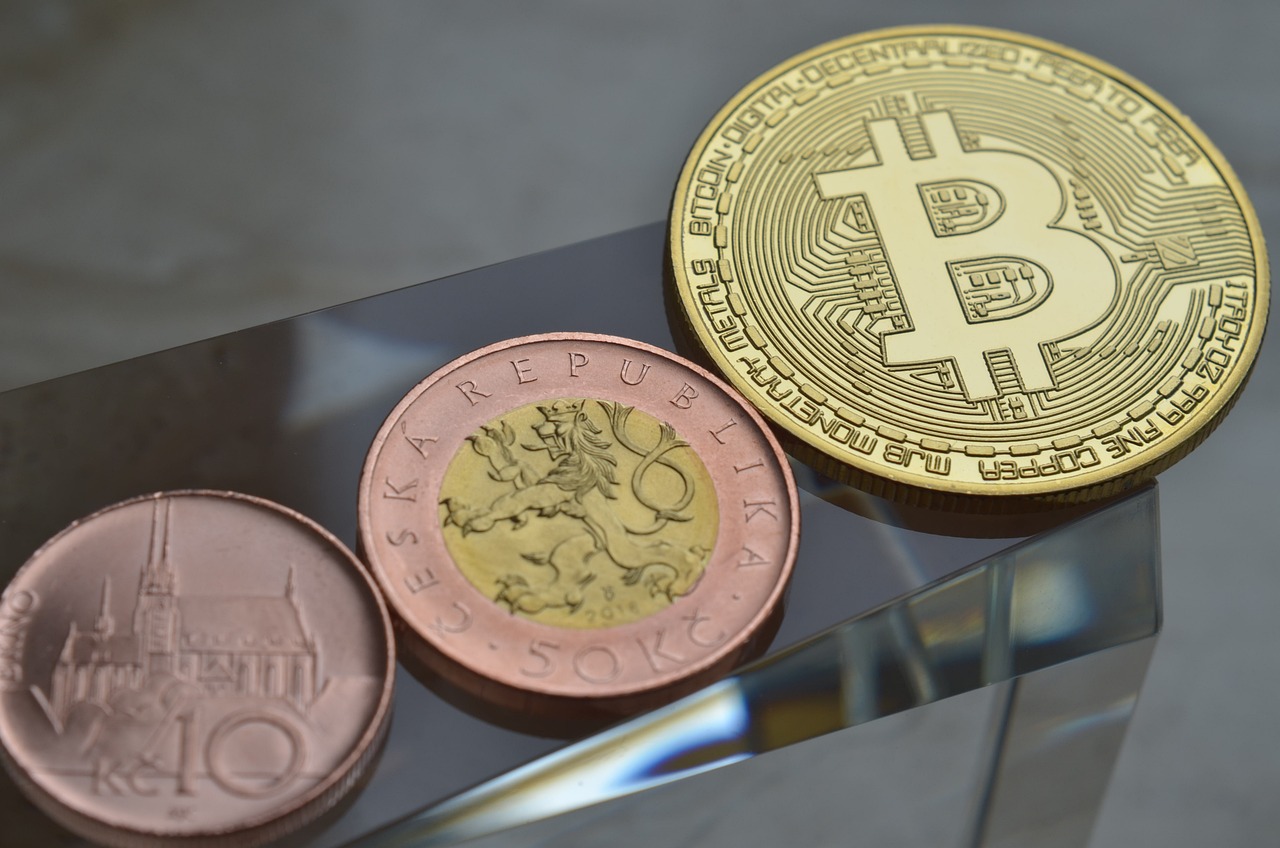How Blockchain is Supporting Innovations in Telemedicine
In recent years, the healthcare industry has witnessed a significant shift towards digital solutions, and telemedicine has emerged as a frontrunner in this transformation. However, with the rise of digital health platforms, concerns about data security, patient privacy, and the efficiency of processes have also escalated. Enter blockchain technology, a revolutionary solution that is paving the way for a more secure and efficient telemedicine landscape. By leveraging the decentralized nature of blockchain, healthcare providers can enhance security, streamline processes, and ultimately improve patient outcomes. Imagine a world where your medical records are not only secure but also accessible only to those you trust—this is the promise of blockchain in telemedicine.
One of the most pressing issues in telemedicine is the risk of data breaches. With sensitive patient information being stored on centralized servers, hackers have a prime target. However, blockchain technology offers a decentralized approach to storing patient data, which significantly reduces the risk of unauthorized access. Each piece of data is encrypted and linked to a unique hash, making it nearly impossible for malicious actors to tamper with or steal information. This ensures that sensitive information remains secure and private, giving patients peace of mind when they seek medical advice online.
In the world of telemedicine, trust is everything. Patients want to feel confident that their personal health information is kept private. With blockchain, patients gain greater control over their health data. They can choose to share specific information with healthcare providers while keeping the rest private. This selective sharing fosters a deeper trust in telemedicine platforms. Imagine being able to handpick what details of your medical history are shared—this newfound control empowers patients and enhances their overall experience.
Blockchain technology fundamentally shifts the paradigm of data ownership. Patients are no longer passive recipients of care; they become active participants in their health journey. By granting patients ownership of their health records, blockchain enables them to decide who can access their information and under what conditions. This level of control is revolutionary, as it allows patients to engage more fully in their healthcare decisions, leading to better outcomes.
Another exciting aspect of blockchain is the use of smart contracts. These self-executing contracts automate the consent process, ensuring that patient permissions are recorded and respected in real-time during telemedicine consultations. This not only streamlines the process but also enhances transparency, as both patients and providers can easily verify consent agreements. Imagine a world where consent is automatically managed, leaving more time for healthcare professionals to focus on patient care rather than paperwork.
With blockchain, every access to patient data is recorded in an immutable log. This means that there is a transparent record of who accessed what information and when. Such auditable access logs not only ensure compliance with privacy regulations but also build trust between patients and providers. Patients can rest assured knowing that their data is being handled responsibly, and providers can demonstrate their commitment to ethical practices.
In a fragmented healthcare system, the ability to share health records seamlessly is crucial. Blockchain technology facilitates this interoperability, allowing for the easy exchange of health records across various telemedicine platforms. This improves care coordination and ensures that healthcare providers have access to comprehensive patient information. Imagine a doctor being able to access your entire medical history in seconds, regardless of where you received treatment—this is the future that blockchain promises.
Billing in telemedicine can often be a cumbersome process, but blockchain technology has the potential to simplify it significantly. By automating transactions and reducing fraud, blockchain leads to more efficient and transparent payment systems. This means that patients can expect clearer billing practices, while providers can reduce administrative burdens.
With blockchain, all transactions are recorded transparently, allowing for easy tracking and verification of billing. This minimizes disputes and enhances trust between providers and patients. Imagine being able to view a detailed history of every transaction related to your care, ensuring that you are only billed for the services you received.
By automating billing and reducing the need for intermediaries, blockchain can significantly lower administrative costs associated with telemedicine. This reduction in costs can translate to more affordable healthcare for patients and providers alike. Think about it—less time spent on billing means more time dedicated to patient care, ultimately benefiting everyone involved.
Blockchain is also set to revolutionize the way clinical trials are conducted. By ensuring data integrity, enhancing participant recruitment, and providing transparent tracking of trial progress, blockchain can accelerate the development of new therapies. This is particularly important in a world where timely access to effective treatments can save lives.
With blockchain technology, researchers can access real-time data from clinical trials, improving collaboration and enabling faster decision-making. This means that treatments can be developed and brought to market more quickly, ultimately benefiting patients who are waiting for new solutions.
Blockchain can also facilitate incentive programs for clinical trial participants. By ensuring that participants are fairly compensated for their contributions, blockchain maintains transparency and trust in the process. Imagine being part of a clinical trial where you know your contributions are valued and rewarded—this not only encourages participation but also enhances the overall quality of research.
- What is blockchain technology? Blockchain is a decentralized digital ledger that records transactions across multiple computers securely.
- How does blockchain improve telemedicine? It enhances security, ensures patient privacy, and streamlines processes like billing and data sharing.
- Can patients control their health data with blockchain? Yes, blockchain empowers patients by giving them ownership of their health records.
- What are smart contracts? Smart contracts are self-executing contracts with the terms directly written into code, automating processes like consent in telemedicine.
- How does blockchain affect clinical trials? It improves data integrity, participant recruitment, and accelerates the development of new therapies.

Enhanced Data Security
This article explores the transformative impact of blockchain technology on telemedicine, highlighting its potential to enhance security, streamline processes, and improve patient outcomes in the healthcare sector.
In today’s digital age, data security is more crucial than ever, especially in the healthcare sector. With the increasing prevalence of cyberattacks, hospitals and telemedicine platforms are under constant threat. This is where blockchain technology steps in as a game-changer. By providing a decentralized approach to storing patient data, blockchain significantly reduces the risk of breaches and unauthorized access. Imagine a vault that is not only locked but also monitored by thousands of eyes—this is essentially how blockchain operates, ensuring that sensitive information remains secure and private.
One of the standout features of blockchain is its inherent decentralization. Unlike traditional databases that are stored in a single location, blockchain distributes data across a network of computers. This means that even if one node is compromised, the integrity of the entire system remains intact. In essence, it’s like having multiple safe deposit boxes scattered across different banks; losing one does not jeopardize the others. This decentralization not only enhances security but also builds trust among patients who are increasingly concerned about the safety of their health data.
Moreover, blockchain employs advanced encryption techniques that protect data from unauthorized access. Each piece of information is encrypted and linked to previous data, forming a chain that is nearly impossible to alter without detection. This immutable nature of blockchain records means that any attempt to tamper with the data would be evident, thus deterring malicious activities. To illustrate this, consider the analogy of a public library: once a book is cataloged, it cannot be removed or altered without leaving a trace. This transparency is vital in maintaining the integrity of patient records.
Additionally, blockchain can enhance data security through the use of smart contracts. These are self-executing contracts with the terms of the agreement directly written into code. When it comes to telemedicine, smart contracts can automate consent processes, ensuring that patient permissions are recorded and respected in real-time during consultations. This not only streamlines the process but also adds an extra layer of security, as patients can have peace of mind knowing their consent is documented and immutable.
Furthermore, blockchain creates auditable access logs of all data access. This means that every time someone accesses a patient’s information, it is recorded in a transparent manner that can be audited. This feature is crucial for compliance with privacy regulations, as healthcare providers can demonstrate that they are adhering to legal standards while also respecting patient consent. The ability to audit access logs also fosters accountability, ensuring that only authorized personnel can view sensitive information.
In conclusion, the integration of blockchain technology into telemedicine not only enhances data security but also builds a robust framework for trust between patients and healthcare providers. As the healthcare landscape continues to evolve, embracing such innovative technologies will be essential for safeguarding patient information and improving overall outcomes.
- What is blockchain technology?
Blockchain technology is a decentralized digital ledger that securely records transactions across multiple computers, ensuring that the data is immutable and transparent.
- How does blockchain enhance data security in telemedicine?
By decentralizing data storage, using advanced encryption, and creating auditable access logs, blockchain significantly reduces the risk of data breaches and unauthorized access.
- What are smart contracts?
Smart contracts are self-executing contracts with the terms directly written into code, allowing for automated processes and enhanced security in patient consent management.

Improved Patient Privacy
This article explores the transformative impact of blockchain technology on telemedicine, highlighting its potential to enhance security, streamline processes, and improve patient outcomes in the healthcare sector.
Blockchain provides a decentralized approach to storing patient data, significantly reducing the risk of breaches and unauthorized access, ensuring that sensitive information remains secure and private.
In today's digital age, where data breaches are alarmingly common, patient privacy has become a paramount concern. Blockchain technology offers a revolutionary solution that not only safeguards sensitive health information but also empowers patients with control over their data. Imagine having a digital vault where you decide who gets access to your health records and when they can see them. This is a game-changer! With blockchain, patients can share their health information selectively, which fosters a sense of trust in telemedicine platforms.
Moreover, the concept of data ownership is at the heart of this privacy revolution. Patients are no longer passive recipients of healthcare; they are active participants. They can dictate the terms of access to their health records, ensuring that their information is only shared with authorized personnel. This level of control is crucial in building a trusted relationship between patients and healthcare providers.
With blockchain, the ownership of health records is transferred back to the patients. They can easily manage their health data and decide who can access it. This not only enhances privacy but also encourages patients to engage more actively in their healthcare journey. By having the ability to control their own information, patients can make informed decisions about their treatment and care.
One of the most exciting features of blockchain in telemedicine is the use of smart contracts. These self-executing contracts automate the consent process, ensuring that patient permissions are recorded and respected in real-time during telemedicine consultations. Imagine being able to grant access to your medical history with a simple click, knowing that your consent is securely documented and cannot be altered without your approval. This not only streamlines the process but also enhances the overall patient experience.
Another significant advantage of blockchain technology is its ability to create immutable logs of all data access. This means that every time a healthcare provider accesses a patient's information, it is recorded in a transparent and auditable manner. Such logs can be reviewed to ensure compliance with privacy regulations and patient consent. This level of transparency not only builds trust but also holds healthcare providers accountable for the handling of sensitive data.
Blockchain facilitates seamless sharing of health records across various telemedicine platforms, improving care coordination and ensuring that healthcare providers have access to comprehensive patient information. This interoperability is essential for delivering high-quality healthcare, as it enables providers to make well-informed decisions based on complete and accurate patient data.
Blockchain technology can simplify billing procedures in telemedicine by automating transactions and reducing fraud, leading to more efficient and transparent payment systems.
Using blockchain, all transactions are recorded transparently, allowing for easy tracking and verification of billing, which minimizes disputes and enhances trust between providers and patients.
By automating billing and reducing the need for intermediaries, blockchain can lower administrative costs associated with telemedicine, making healthcare more affordable for patients and providers alike.
Blockchain can revolutionize clinical trials by ensuring data integrity, enhancing participant recruitment, and providing transparent tracking of trial progress, ultimately accelerating the development of new therapies.
With blockchain, researchers can access real-time data from clinical trials, improving collaboration and enabling faster decision-making in the development of new treatments.
Blockchain can facilitate incentive programs for clinical trial participants, ensuring they are fairly compensated for their contributions while maintaining transparency and trust in the process.
- What is blockchain technology?
Blockchain is a decentralized digital ledger that securely records transactions across multiple computers, ensuring that the information is immutable and transparent. - How does blockchain enhance patient privacy in telemedicine?
Blockchain gives patients control over their health data, allowing them to share information selectively and ensuring that access is logged and auditable. - What are smart contracts?
Smart contracts are self-executing agreements with the terms of the contract directly written into code, allowing for automated and secure transactions. - Can blockchain reduce healthcare costs?
Yes, by streamlining processes like billing and reducing administrative overhead, blockchain can help lower costs in the healthcare sector.

Data Ownership
This article explores the transformative impact of blockchain technology on telemedicine, highlighting its potential to enhance security, streamline processes, and improve patient outcomes in the healthcare sector.
Blockchain provides a decentralized approach to storing patient data, significantly reducing the risk of breaches and unauthorized access, ensuring that sensitive information remains secure and private.
With blockchain, patients have greater control over their health data, allowing them to share information selectively while maintaining their privacy, which fosters trust in telemedicine platforms.
In the realm of telemedicine, is a game changer. Traditionally, patients have had little to no control over their medical records, often feeling like mere spectators in their own healthcare journey. However, blockchain technology flips the script by empowering patients with true ownership of their health data. Imagine being able to decide who gets to see your medical history and under what circumstances! This newfound control not only enhances patient autonomy but also builds a stronger bond of trust between patients and healthcare providers.
With blockchain, every individual can manage their health records through a personal digital wallet, a secure and user-friendly interface that allows for selective sharing. For instance, when visiting a new specialist, a patient can grant access to specific data relevant to that consultation while withholding other sensitive information. This level of control is akin to having a personal vault where you can determine who gets the key.
Moreover, the concept of smart contracts plays a crucial role in this ecosystem. These self-executing contracts ensure that patient permissions are not only granted but also respected in real-time during telemedicine consultations. Such automation minimizes the risk of miscommunication and unauthorized access, fostering a secure environment for both patients and providers.
Additionally, blockchain creates auditable access logs that provide a transparent record of who accessed what information and when. This feature is invaluable for compliance with privacy regulations, as it allows both patients and providers to track data access effortlessly. In essence, patients can rest easy knowing that their health information is not just floating around aimlessly but is instead protected by a robust framework designed to uphold their rights.
- What is data ownership in telemedicine?
Data ownership in telemedicine refers to the patient's right to control who can access their medical records and under what conditions, facilitated by blockchain technology. - How does blockchain enhance data security?
Blockchain enhances data security by decentralizing the storage of patient information, making it significantly harder for unauthorized parties to breach the system. - What are smart contracts?
Smart contracts are self-executing contracts with the terms of the agreement directly written into code, ensuring that patient permissions are respected automatically.

Smart Contracts for Consent
This article explores the transformative impact of blockchain technology on telemedicine, highlighting its potential to enhance security, streamline processes, and improve patient outcomes in the healthcare sector.
Blockchain provides a decentralized approach to storing patient data, significantly reducing the risk of breaches and unauthorized access, ensuring that sensitive information remains secure and private.
With blockchain, patients have greater control over their health data, allowing them to share information selectively while maintaining their privacy, which fosters trust in telemedicine platforms.
Blockchain empowers patients by granting them ownership of their health records, enabling them to decide who can access their information and under what conditions.
Imagine a world where your consent is not just a checkbox you tick off but a living, breathing contract that respects your choices in real-time. Smart contracts are the backbone of this revolutionary approach in telemedicine. These self-executing contracts, with the terms of the agreement directly written into lines of code, automate the consent process, ensuring that patient permissions are recorded and respected without the need for intermediaries. This means that every time you engage with a healthcare provider through a telemedicine platform, the system automatically verifies and executes the consent you’ve previously granted.
Moreover, smart contracts enhance transparency in healthcare interactions. For instance, when a patient decides to share their medical history with a specialist, the smart contract can stipulate the exact conditions under which that information can be accessed. If the specialist attempts to access data outside those conditions, the contract will prevent it. This not only protects patient privacy but also builds trust between patients and healthcare providers.
To illustrate how this works, consider the following example:
| Step | Action | Outcome |
|---|---|---|
| 1 | Patient grants consent via smart contract. | Consent is recorded on the blockchain. |
| 2 | Healthcare provider requests access to data. | Smart contract checks consent conditions. |
| 3 | Access granted or denied based on conditions. | Patient's privacy is upheld. |
This level of automation not only saves time but also reduces the potential for human error in managing consent. The immutable nature of blockchain means that once consent is recorded, it cannot be altered without the patient's knowledge, further solidifying the trust factor. In a field where patient data is of utmost importance, leveraging smart contracts for consent can significantly enhance the integrity of telemedicine practices.
Blockchain creates immutable logs of all data access, providing a transparent record that can be audited to ensure compliance with privacy regulations and patient consent.
Blockchain facilitates seamless sharing of health records across various telemedicine platforms, improving care coordination and ensuring that healthcare providers have access to comprehensive patient information.
Blockchain technology can simplify billing procedures in telemedicine by automating transactions and reducing fraud, leading to more efficient and transparent payment systems.
Using blockchain, all transactions are recorded transparently, allowing for easy tracking and verification of billing, which minimizes disputes and enhances trust between providers and patients.
By automating billing and reducing the need for intermediaries, blockchain can lower administrative costs associated with telemedicine, making healthcare more affordable for patients and providers alike.
Blockchain can revolutionize clinical trials by ensuring data integrity, enhancing participant recruitment, and providing transparent tracking of trial progress, ultimately accelerating the development of new therapies.
With blockchain, researchers can access real-time data from clinical trials, improving collaboration and enabling faster decision-making in the development of new treatments.
Blockchain can facilitate incentive programs for clinical trial participants, ensuring they are fairly compensated for their contributions while maintaining transparency and trust in the process.
- What is blockchain technology? Blockchain is a decentralized digital ledger that securely records transactions across multiple computers.
- How does blockchain enhance data security in telemedicine? By decentralizing data storage, blockchain significantly reduces the risk of data breaches and unauthorized access.
- What are smart contracts? Smart contracts are self-executing contracts with the terms of the agreement directly written into code, automating processes like patient consent.
- Can blockchain improve patient privacy? Yes, blockchain allows patients to control who accesses their health data, fostering trust in telemedicine platforms.

Auditable Access Logs
This article explores the transformative impact of blockchain technology on telemedicine, highlighting its potential to enhance security, streamline processes, and improve patient outcomes in the healthcare sector.
Blockchain provides a decentralized approach to storing patient data, significantly reducing the risk of breaches and unauthorized access, ensuring that sensitive information remains secure and private.
With blockchain, patients have greater control over their health data, allowing them to share information selectively while maintaining their privacy, which fosters trust in telemedicine platforms.
Blockchain empowers patients by granting them ownership of their health records, enabling them to decide who can access their information and under what conditions.
Utilizing smart contracts, blockchain can automate consent processes, ensuring that patient permissions are recorded and respected in real-time during telemedicine consultations.
In the realm of telemedicine, play a critical role in maintaining the integrity and security of patient data. By leveraging blockchain technology, each access to patient records is meticulously recorded in an immutable ledger. This means that once a record is created, it cannot be altered or deleted, providing a reliable history of who accessed what information and when. Imagine a world where every interaction with your medical data is transparent and traceable; that's the power of blockchain.
These logs not only enhance accountability among healthcare providers but also ensure compliance with various privacy regulations. For instance, healthcare organizations can easily demonstrate adherence to regulations such as HIPAA by providing a clear audit trail of data access. This transparency fosters trust between patients and providers, as patients can feel confident that their sensitive information is being handled responsibly.
Furthermore, the ability to review access logs can help identify any unauthorized attempts to access data, allowing for swift action to be taken. With blockchain, healthcare providers can implement robust security measures that not only protect patient data but also enhance the overall credibility of telemedicine platforms.
As we move forward, the integration of auditable access logs will undoubtedly become a standard practice in telemedicine, ensuring that patient data remains secure while promoting a culture of transparency and trust.
Blockchain facilitates seamless sharing of health records across various telemedicine platforms, improving care coordination and ensuring that healthcare providers have access to comprehensive patient information.
Blockchain technology can simplify billing procedures in telemedicine by automating transactions and reducing fraud, leading to more efficient and transparent payment systems.
Using blockchain, all transactions are recorded transparently, allowing for easy tracking and verification of billing, which minimizes disputes and enhances trust between providers and patients.
By automating billing and reducing the need for intermediaries, blockchain can lower administrative costs associated with telemedicine, making healthcare more affordable for patients and providers alike.
Blockchain can revolutionize clinical trials by ensuring data integrity, enhancing participant recruitment, and providing transparent tracking of trial progress, ultimately accelerating the development of new therapies.
With blockchain, researchers can access real-time data from clinical trials, improving collaboration and enabling faster decision-making in the development of new treatments.
Blockchain can facilitate incentive programs for clinical trial participants, ensuring they are fairly compensated for their contributions while maintaining transparency and trust in the process.
- What is blockchain technology?
Blockchain is a decentralized digital ledger technology that securely records transactions across multiple computers, ensuring that the recorded data cannot be altered retroactively. - How does blockchain enhance data security in telemedicine?
By decentralizing data storage and creating immutable records, blockchain significantly reduces the risk of data breaches and unauthorized access. - Can patients control their health data with blockchain?
Yes, blockchain empowers patients by giving them ownership of their health records and control over who can access their information. - What are auditable access logs?
These are transparent records of all access to patient data, ensuring accountability and compliance with privacy regulations.

Interoperability of Health Records
In the ever-evolving landscape of healthcare, interoperability of health records is a game-changer. Imagine a world where your medical history is as accessible as your favorite playlist. That’s the promise of blockchain technology in telemedicine. By enabling seamless sharing of health records across various platforms, blockchain ensures that healthcare providers have access to comprehensive patient information without the usual headaches of data silos.
Think about it: when you visit a new doctor, they often ask for your medical history, which can be a hassle to gather. With blockchain, your health records can be securely stored and shared with just a click. This means that every healthcare professional involved in your care—from specialists to primary care physicians—can access the same up-to-date information. This not only improves care coordination but also minimizes the risk of errors that can arise from incomplete or outdated records.
Furthermore, the decentralized nature of blockchain ensures that no single entity has control over your health data. Instead, you, as the patient, hold the key to your information. You can decide who gets access to your records and under what circumstances. This level of control fosters a sense of trust between patients and healthcare providers, making it easier for individuals to engage in their own care actively.
But how does this actually work in practice? Here’s a brief overview:
| Feature | Description |
|---|---|
| Decentralized Storage | Data is stored across a distributed network, reducing the risk of a single point of failure. |
| Data Access Control | Patients can grant or revoke access to their health records at any time. |
| Real-time Updates | Any changes to health records are updated in real-time, ensuring all parties have the latest information. |
| Enhanced Security | Blockchain's cryptographic techniques protect data from unauthorized access and tampering. |
In conclusion, the interoperability of health records through blockchain technology not only streamlines the healthcare process but also empowers patients. It’s like having a personal health assistant who knows your history inside out and can share it with the right people at the right time. This innovation is paving the way for a more connected and efficient healthcare system, where patients can receive the best possible care without the usual barriers.
- What is interoperability in healthcare? Interoperability refers to the ability of different healthcare systems and applications to communicate and share data effectively.
- How does blockchain improve interoperability? Blockchain allows for secure, decentralized storage and sharing of health records, ensuring that all healthcare providers can access the same up-to-date information.
- Can patients control who accesses their health records? Yes, blockchain technology empowers patients to grant or revoke access to their health data as they see fit.
- What are the security benefits of using blockchain for health records? Blockchain uses advanced cryptographic techniques to protect data from unauthorized access and tampering, enhancing overall security.

Streamlined Billing Processes
This article explores the transformative impact of blockchain technology on telemedicine, highlighting its potential to enhance security, streamline processes, and improve patient outcomes in the healthcare sector.
Blockchain provides a decentralized approach to storing patient data, significantly reducing the risk of breaches and unauthorized access, ensuring that sensitive information remains secure and private.
With blockchain, patients have greater control over their health data, allowing them to share information selectively while maintaining their privacy, which fosters trust in telemedicine platforms.
Blockchain empowers patients by granting them ownership of their health records, enabling them to decide who can access their information and under what conditions.
Utilizing smart contracts, blockchain can automate consent processes, ensuring that patient permissions are recorded and respected in real-time during telemedicine consultations.
Blockchain creates immutable logs of all data access, providing a transparent record that can be audited to ensure compliance with privacy regulations and patient consent.
Blockchain facilitates seamless sharing of health records across various telemedicine platforms, improving care coordination and ensuring that healthcare providers have access to comprehensive patient information.
In the realm of telemedicine, billing processes can often become a complex web of transactions, leading to confusion and frustration for both patients and providers. However, blockchain technology has emerged as a game-changer in this area, providing a solution that not only simplifies but also enhances the efficiency of billing. By leveraging a decentralized ledger, blockchain allows for the automation of transactions, which significantly reduces the potential for fraud. Imagine a world where every payment made is instantly verified and recorded, eliminating the typical delays associated with traditional billing methods.
One of the key advantages of using blockchain for billing is its ability to create transparent transactions. Each transaction is recorded in a way that is visible to all parties involved, which means that patients can easily track their payments and providers can verify the status of their accounts in real-time. This transparency minimizes disputes over billing errors, fostering a sense of trust between patients and healthcare providers. In fact, studies have shown that when patients can see a clear record of their transactions, they are more likely to feel satisfied with their care experience.
Moreover, blockchain technology can lead to reduced administrative costs. By automating the billing process and reducing the need for intermediaries, healthcare providers can save significant amounts on administrative overhead. This not only makes healthcare more affordable for patients but also allows providers to focus more on patient care rather than getting bogged down by paperwork. For instance, consider a scenario where a telemedicine provider can process payments in seconds rather than days—this efficiency can lead to better cash flow and ultimately enhance the quality of care provided.
| Benefits of Blockchain in Billing | Description |
|---|---|
| Transparency | All transactions are visible, reducing disputes and enhancing trust. |
| Automation | Automated billing processes reduce errors and save time. |
| Cost Reduction | Lower administrative costs lead to more affordable healthcare. |
In conclusion, the integration of blockchain technology into telemedicine billing processes not only streamlines operations but also builds a foundation of trust and transparency. As the healthcare landscape continues to evolve, embracing such innovations will be crucial in ensuring that both patients and providers can navigate the complexities of billing with ease.
- What is blockchain technology? Blockchain is a decentralized digital ledger that records transactions across many computers securely and transparently.
- How does blockchain enhance data security in telemedicine? By decentralizing data storage, blockchain reduces the risk of breaches and unauthorized access.
- Can patients control their health data on blockchain? Yes, blockchain empowers patients with ownership and control over their health records.
- What are smart contracts? Smart contracts are self-executing contracts with the terms of the agreement directly written into code, automating processes like consent in telemedicine.
- How does blockchain simplify billing? It automates transactions, ensures transparency, and reduces administrative costs, making billing processes more efficient.

Transparent Transactions
This article explores the transformative impact of blockchain technology on telemedicine, highlighting its potential to enhance security, streamline processes, and improve patient outcomes in the healthcare sector.
Blockchain provides a decentralized approach to storing patient data, significantly reducing the risk of breaches and unauthorized access, ensuring that sensitive information remains secure and private.
With blockchain, patients have greater control over their health data, allowing them to share information selectively while maintaining their privacy, which fosters trust in telemedicine platforms.
Blockchain empowers patients by granting them ownership of their health records, enabling them to decide who can access their information and under what conditions.
Utilizing smart contracts, blockchain can automate consent processes, ensuring that patient permissions are recorded and respected in real-time during telemedicine consultations.
Blockchain creates immutable logs of all data access, providing a transparent record that can be audited to ensure compliance with privacy regulations and patient consent.
Blockchain facilitates seamless sharing of health records across various telemedicine platforms, improving care coordination and ensuring that healthcare providers have access to comprehensive patient information.
Blockchain technology can simplify billing procedures in telemedicine by automating transactions and reducing fraud, leading to more efficient and transparent payment systems.
Imagine a world where every transaction is crystal clear, where you can see exactly what you paid for and when. That's the magic of blockchain! With this technology, all transactions are recorded on a public ledger, ensuring that every payment made in the telemedicine space is transparent and easily verifiable. This eliminates any guesswork and builds a solid foundation of trust between patients and healthcare providers.
For instance, when a patient pays for a consultation, that transaction is immediately logged on the blockchain, along with details such as the amount paid, the date, and the services rendered. This level of transparency minimizes disputes and allows both parties to have a clear understanding of the financial aspects of their interaction. If a patient questions a bill, they can simply refer to the blockchain record to clarify any misunderstandings.
Moreover, this transparency extends to insurance claims as well. Insurance companies can access the same blockchain records, which means they can verify claims quickly and accurately, reducing the time it takes for patients to receive reimbursements. In a nutshell, blockchain not only makes transactions transparent but also enhances the overall efficiency of the billing process.
Here’s a quick comparison of traditional transaction methods versus blockchain transactions:
| Aspect | Traditional Transactions | Blockchain Transactions |
|---|---|---|
| Transparency | Limited visibility | Fully transparent and auditable |
| Verification Time | Can take days | Instant verification |
| Disputes | Common and often lengthy | Minimized due to clear records |
| Trust | Dependent on intermediaries | Built-in trust through decentralization |
In conclusion, the transparent nature of blockchain transactions not only enhances trust but also streamlines the entire billing process in telemedicine, paving the way for a more efficient healthcare system.
- What is blockchain technology? Blockchain is a decentralized digital ledger that records transactions across many computers in a way that the registered transactions cannot be altered retroactively.
- How does blockchain enhance patient privacy? Patients gain control over their health data, allowing them to decide who accesses their information while ensuring that their privacy remains intact.
- Can blockchain reduce healthcare costs? Yes, by streamlining processes and reducing administrative burdens, blockchain can lead to significant cost savings for both patients and healthcare providers.
- What are smart contracts? Smart contracts are self-executing contracts with the terms of the agreement directly written into code, automating processes like consent in telemedicine.

Reduced Administrative Costs
In the ever-evolving landscape of telemedicine, one of the most significant advantages blockchain technology brings to the table is the potential for . Imagine a world where healthcare providers no longer have to navigate the cumbersome processes associated with billing and claims management. Instead, blockchain simplifies these processes, creating a more efficient system that benefits both patients and providers.
At its core, blockchain technology automates many of the traditional billing procedures that often involve multiple intermediaries, each taking a cut of the transaction. By eliminating these middlemen, blockchain not only streamlines the payment process but also reduces the overall costs associated with healthcare administration. This means that healthcare providers can focus more on what truly matters—delivering quality care to their patients.
Consider the following points that highlight how blockchain reduces administrative costs:
- Automation of Billing: With smart contracts, billing can be automated, ensuring that payments are processed quickly and accurately without manual intervention.
- Reduced Fraud: Blockchain’s transparency makes it much harder for fraudulent activities to occur, which can save healthcare providers significant amounts of money.
- Fewer Errors: By minimizing human involvement in billing, blockchain reduces the likelihood of errors that can lead to costly disputes and delays.
Additionally, the transparency offered by blockchain allows for easy tracking of transactions, which can lead to quicker resolution of any billing issues that may arise. This not only saves time but also fosters a sense of trust between patients and providers, as everyone can see the details of transactions in real-time.
To put it into perspective, let’s consider a simple table that illustrates how blockchain compares to traditional billing systems in terms of cost efficiency:
| Aspect | Traditional Billing System | Blockchain Billing System |
|---|---|---|
| Administrative Costs | High due to intermediaries | Low with automation |
| Time for Processing | Days to weeks | Instantaneous |
| Fraud Risk | High | Minimal |
| Dispute Resolution | Lengthy and costly | Quick and transparent |
As we can see, the advantages of using blockchain technology for billing in telemedicine are substantial. By embracing this innovative approach, healthcare providers can significantly cut down on administrative costs, ultimately leading to more affordable care for patients. It's a win-win situation where efficiency meets affordability, paving the way for a more sustainable healthcare system.
Q1: How does blockchain improve billing processes in telemedicine?
A1: Blockchain automates billing through smart contracts, eliminates intermediaries, and provides transparent transaction records, all of which lead to reduced administrative costs and faster processing times.
Q2: What are the potential savings for healthcare providers using blockchain?
A2: While exact savings can vary, many providers report significant reductions in administrative costs due to less reliance on manual processes and fewer errors in billing.
Q3: Is patient data safe with blockchain billing?
A3: Yes, blockchain enhances data security through decentralization and encryption, making it more difficult for unauthorized access or fraud to occur.
Q4: Can blockchain help with billing disputes?
A4: Absolutely! The transparency of blockchain allows for quick resolution of disputes, as all transaction details are available for review.

Decentralized Clinical Trials
In the ever-evolving landscape of healthcare, are emerging as a game-changer, and blockchain technology is at the forefront of this revolution. Imagine a world where clinical trials aren’t confined to traditional settings, but instead, they can be conducted remotely, allowing participants to join from the comfort of their homes. This shift not only broadens the participant pool but also enhances the diversity of data collected, leading to more robust and inclusive research outcomes.
One of the most significant advantages of utilizing blockchain in decentralized clinical trials is the assurance of data integrity. With blockchain's immutable nature, every piece of data collected during the trial is securely stored and cannot be altered or deleted. This level of transparency is crucial for researchers who need to trust the data they are analyzing. Furthermore, it enables regulatory bodies to verify that the data submitted for approval is accurate and untainted by manipulation.
Moreover, blockchain facilitates real-time data sharing among researchers, participants, and healthcare providers. Imagine researchers being able to access live data from trials, allowing them to make informed decisions on the fly. This capability not only accelerates the trial process but also enhances collaboration among different stakeholders. For instance, if a participant experiences an unexpected reaction to a treatment, this information can be instantly recorded and shared, prompting immediate action to ensure participant safety.
Another exciting aspect of decentralized clinical trials is the potential for participant incentives. Blockchain can streamline the process of compensating participants for their involvement in trials. By automating payment systems through smart contracts, researchers can ensure that participants receive timely and transparent compensation for their contributions. This not only fosters a sense of trust but also encourages more individuals to participate, knowing they will be fairly rewarded for their time and effort.
In summary, decentralized clinical trials powered by blockchain technology offer a multitude of benefits, including enhanced data integrity, real-time data sharing, and streamlined participant incentives. As we continue to explore the potential of these innovations, it's clear that the future of clinical research is not just promising; it's revolutionary.
- What are decentralized clinical trials? Decentralized clinical trials allow participants to engage in research remotely, often using digital tools and technologies to collect data, rather than being physically present at a trial site.
- How does blockchain enhance clinical trials? Blockchain ensures data integrity, allows for real-time data sharing, and automates participant compensation, making the trial process more efficient and trustworthy.
- What are the benefits of participating in decentralized clinical trials? Participants can join from anywhere, have greater control over their data, and are often compensated fairly for their involvement.

Real-time Data Sharing
This article explores the transformative impact of blockchain technology on telemedicine, highlighting its potential to enhance security, streamline processes, and improve patient outcomes in the healthcare sector.
Blockchain provides a decentralized approach to storing patient data, significantly reducing the risk of breaches and unauthorized access, ensuring that sensitive information remains secure and private.
With blockchain, patients have greater control over their health data, allowing them to share information selectively while maintaining their privacy, which fosters trust in telemedicine platforms.
Blockchain empowers patients by granting them ownership of their health records, enabling them to decide who can access their information and under what conditions.
Utilizing smart contracts, blockchain can automate consent processes, ensuring that patient permissions are recorded and respected in real-time during telemedicine consultations.
Blockchain creates immutable logs of all data access, providing a transparent record that can be audited to ensure compliance with privacy regulations and patient consent.
Blockchain facilitates seamless sharing of health records across various telemedicine platforms, improving care coordination and ensuring that healthcare providers have access to comprehensive patient information.
Blockchain technology can simplify billing procedures in telemedicine by automating transactions and reducing fraud, leading to more efficient and transparent payment systems.
Using blockchain, all transactions are recorded transparently, allowing for easy tracking and verification of billing, which minimizes disputes and enhances trust between providers and patients.
By automating billing and reducing the need for intermediaries, blockchain can lower administrative costs associated with telemedicine, making healthcare more affordable for patients and providers alike.
Blockchain can revolutionize clinical trials by ensuring data integrity, enhancing participant recruitment, and providing transparent tracking of trial progress, ultimately accelerating the development of new therapies.
Imagine a world where researchers can access crucial data from clinical trials in real-time, much like how we check the weather on our smartphones. This capability is made possible by blockchain technology, which allows for instantaneous data sharing among all stakeholders involved in a clinical trial. The benefits of real-time data sharing are profound and multifaceted:
- Enhanced Collaboration: Researchers from different institutions can collaborate more effectively, sharing insights and findings as they happen, rather than waiting for scheduled updates.
- Faster Decision-Making: With immediate access to data, researchers can make quicker decisions regarding the trial's direction, potentially speeding up the development of new treatments.
- Improved Patient Safety: Real-time monitoring of trial data allows for quicker responses to any adverse events, enhancing patient safety during the trial.
This level of immediacy not only increases the efficiency of the research process but also builds a foundation of trust among participants, knowing that their health data is being monitored and utilized responsibly. Furthermore, the transparency offered by blockchain ensures that all data shared is verifiable and tamper-proof, providing an essential layer of integrity to the research.
Q1: How does blockchain improve data security in telemedicine?
A1: Blockchain enhances data security by decentralizing the storage of patient information, making it significantly harder for unauthorized users to access sensitive data.
Q2: Can patients control who accesses their health records with blockchain?
A2: Yes, blockchain empowers patients by granting them ownership of their health records, allowing them to decide who can access their information and under what conditions.
Q3: What role do smart contracts play in telemedicine?
A3: Smart contracts automate consent processes, ensuring that patient permissions are recorded and respected in real-time during telemedicine consultations.
Q4: How does blockchain streamline billing processes?
A4: Blockchain simplifies billing by automating transactions and providing transparent records, which minimizes disputes and enhances trust between providers and patients.
Q5: In what ways can blockchain facilitate decentralized clinical trials?
A5: Blockchain ensures data integrity, enhances participant recruitment, and provides transparent tracking of trial progress, ultimately accelerating the development of new therapies.

Participant Incentives
In the realm of clinical trials, play a crucial role in attracting and retaining individuals who are willing to contribute to the advancement of medical research. With the integration of blockchain technology, the process of managing these incentives becomes not only more efficient but also more transparent. Imagine a world where participants are not just volunteers but active partners in the development of new therapies, with their contributions recognized and rewarded in a fair manner.
One of the most exciting aspects of blockchain is its ability to automate and streamline the incentive distribution process. By utilizing smart contracts, researchers can set predefined conditions that automatically trigger payments or rewards once participants complete specific milestones in the trial. This eliminates the hassle of manual processing and ensures that participants receive their incentives promptly. For example, a participant might receive a small payment for attending each scheduled visit or completing a survey, all tracked and verified through the blockchain.
Moreover, these incentives can take various forms, catering to the diverse needs and preferences of participants. Some might prefer direct financial compensation, while others may appreciate non-monetary rewards such as gift cards, health-related products, or even discounts on future healthcare services. By offering a range of options, researchers can enhance participant satisfaction and encourage higher enrollment rates.
Transparency is another significant benefit of using blockchain for participant incentives. With every transaction recorded on a public ledger, participants can easily verify that their contributions are being recognized and rewarded. This level of openness fosters trust between researchers and participants, which is essential for the success of any clinical trial. If individuals believe their efforts are valued and that they are being treated fairly, they are more likely to stay engaged throughout the study.
Furthermore, blockchain can help ensure compliance with ethical standards and regulations surrounding participant incentives. By maintaining an auditable record of all transactions, researchers can demonstrate that they are adhering to guidelines that protect participants' rights and welfare. This not only enhances the credibility of the trial but also reassures participants that their involvement is being handled with integrity.
In conclusion, leveraging blockchain technology for participant incentives in clinical trials offers a win-win scenario for everyone involved. Participants are more likely to engage and remain committed when they feel their contributions are recognized and rewarded fairly. As the healthcare landscape continues to evolve, embracing such innovative solutions will be key to accelerating the development of new therapies and improving patient outcomes.
- What are participant incentives in clinical trials?
Participant incentives are rewards offered to individuals who take part in clinical trials. These can include financial compensation, gift cards, or health-related products to encourage participation and retention. - How does blockchain improve the management of participant incentives?
Blockchain automates the incentive distribution process through smart contracts, ensuring timely payments and enhancing transparency in transactions. - What types of incentives can participants receive?
Incentives can vary widely, including monetary rewards, discounts on healthcare services, or non-monetary items like gift cards, tailored to participant preferences. - Why is transparency important in participant incentives?
Transparency fosters trust between researchers and participants, ensuring that individuals feel their contributions are valued and that they are treated fairly throughout the trial.
Frequently Asked Questions
- What is blockchain technology?
Blockchain technology is a decentralized digital ledger that records transactions across many computers securely and transparently. This technology ensures that the information cannot be altered retroactively, which provides a high level of security and trust.
- How does blockchain enhance data security in telemedicine?
By decentralizing the storage of patient data, blockchain significantly reduces the risk of breaches and unauthorized access. This means sensitive information remains secure and private, making telemedicine platforms safer for patients.
- Can patients control their health data with blockchain?
Absolutely! Blockchain empowers patients by giving them ownership of their health records. They can decide who can access their information and under what conditions, fostering trust and privacy in telemedicine.
- What are smart contracts, and how do they work in telemedicine?
Smart contracts are self-executing contracts with the terms of the agreement directly written into code. In telemedicine, they automate consent processes, ensuring that patient permissions are recorded and respected in real-time during consultations.
- How does blockchain facilitate interoperability of health records?
Blockchain allows for seamless sharing of health records across various telemedicine platforms. This improved interoperability enhances care coordination, ensuring healthcare providers have access to comprehensive patient information when needed.
- What benefits does blockchain provide for billing processes in telemedicine?
Blockchain simplifies billing by automating transactions and reducing fraud. This leads to more efficient and transparent payment systems, ultimately lowering administrative costs for both patients and providers.
- How can blockchain revolutionize clinical trials?
Blockchain ensures data integrity and enhances participant recruitment by providing transparent tracking of trial progress. This technology accelerates the development of new therapies by improving collaboration among researchers and stakeholders.
- What role does real-time data sharing play in clinical trials?
With blockchain, researchers can access real-time data from clinical trials, improving collaboration and enabling faster decision-making in developing new treatments. This timely access to information can make a significant difference in research outcomes.
- How does blockchain ensure fair compensation for clinical trial participants?
Blockchain can facilitate incentive programs that ensure participants are fairly compensated for their contributions. This transparency builds trust in the process and encourages more individuals to take part in clinical trials.



















